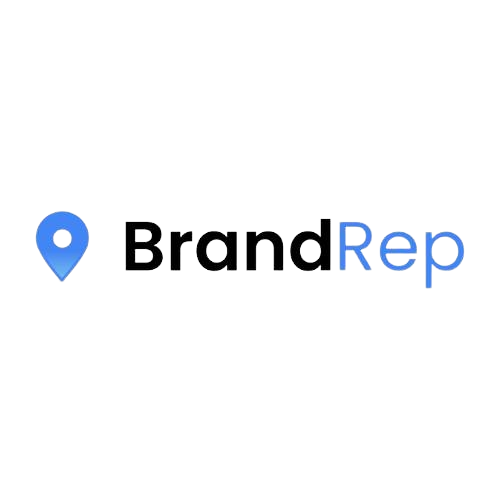If you’ve ever run a digital marketing campaign, you’ve likely come across the term PPC, or Pay-Per-Click. Whether you’re a small business owner or a marketing professional, understanding PPC is crucial for enhancing your strategy. PPC is an advertising model where advertisers pay a fee each time their ad is clicked, rather than paying for ad space upfront. This makes it a cost-effective way to drive targeted traffic to your website, and it can work across search engines, social media platforms, websites, and apps.
How Does PPC Work?
PPC is a straightforward concept: advertisers pay only when someone clicks on their ad, not just to display it. This makes it a cost-effective way to drive targeted traffic to your website. PPC ads can appear on search engines, social media, websites, and apps, triggered by specific keywords. To get the best return on investment, choosing relevant keywords, writing compelling ad copy, and closely monitoring your campaign’s performance are crucial.
Why Is PPC Important?
Why should you consider adding PPC to your marketing mix? Here are a few reasons why PPC is such a valuable tool:
Immediate Results
Unlike SEO, which can take time to show results, PPC is instant. As soon as your campaign goes live, you can start driving traffic to your site and potentially generating leads or sales immediately. This immediate visibility is valuable for running time-sensitive promotions or launching new products. Additionally, you can see your campaign performance in real-time, allowing you to make quick adjustments for better results.
Highly Targeted
PPC allows you to get incredibly specific with your targeting. You can focus on particular demographics, locations, devices, or even time of day. This helps you reach the people most likely to be interested in what you’re offering. The ability to segment your audience means you’re not wasting your budget on irrelevant clicks, maximizing the effectiveness of your ads. Plus, you can continually refine your targeting based on campaign data to improve results.
Measurable ROI
One of the great things about PPC is that it’s highly trackable. You can measure everything—from the number of clicks to the cost per click and even the number of conversions you get. This means you can easily calculate your return on investment (ROI) and make adjustments to improve your campaigns. You can also track the lifetime value of customers acquired through PPC, giving you deeper insights into the long-term benefits. With clear metrics, you can confidently allocate your marketing budget to the strategies that deliver the best outcomes.
Increased Brand Visibility
PPC ads appear at the top of search results or popular websites, giving your brand more exposure. Even if users don’t click on your ad, just seeing it can help raise awareness and make your brand more recognizable. Over time, this consistent exposure can build trust and credibility, especially if your ads appear alongside top search results. As users continue to see your brand, they may be more likely to engage with it in the future, even if they don’t click the first time they see your ad.
Control Over Budget
With PPC, you have full control over how much you spend. You can set daily or monthly budgets and adjust your bids based on your goals. This flexibility makes it easier to scale your campaigns up or down, depending on your needs. Whether you’re working with a modest budget or have more to spend, PPC allows you to tailor your campaign to match your financial goals. Plus, you can adjust your spending in real-time based on the performance of your ads, ensuring you’re always optimizing your budget for the best results.
The Benefits of Using PPC
When done correctly, PPC offers several key benefits for businesses looking to boost their digital marketing efforts:
Cost Efficiency
PPC is often considered more cost-effective than other advertising methods. Since you only pay when someone clicks on your ad, you only pay for actual engagement. This ensures you’re getting value for your money, especially when you target high-converting keywords.
Faster Results
Unlike organic SEO, which can take months to show tangible results, PPC delivers instant traffic. If you need quick results—whether it’s for a product launch, seasonal sale, or lead generation campaign—PPC can be the fastest way to reach your audience.
Improved Visibility
PPC ads appear in prominent positions—usually at the top or bottom of search engine results pages (SERPs). This prime real estate increases your visibility, especially if you’re competing with other businesses in a competitive industry.
Enhanced Brand Recognition
Even if users don’t click on your ad immediately, just seeing it repeatedly can increase brand awareness and trust. Consistent visibility through PPC ads can help build a strong presence in your industry.
Targeting and Customization
One of the biggest benefits of PPC is the ability to target your audience precisely. You can customize your campaigns to reach specific demographics, geographic locations, and even time periods. This level of targeting helps you get your message in front of the right people at the right time.
Measurable Results
With PPC, you can track every detail of your campaign, from the number of clicks to the number of conversions and the cost per acquisition (CPA). This data allows you to fine-tune your campaigns for optimal performance and ensure you’re maximizing your budget.
Types of PPC Ads
PPC ads aren’t one-size-fits-all. Several types of PPC ads are designed to meet different marketing goals. Here’s a quick overview of the most common types:
- Search Ads: Search ads are the most common type of PPC ad. When users enter a specific query, they appear at the top or bottom of search engine results. These ads are usually text-based and are triggered by the keywords you target. Search ads are great for capturing users actively searching for products or services like yours.
- Display Ads: Display ads are visual ads that appear on websites within Google’s Display Network or on social media platforms. These ads can be images, banners, or videos and are a great way to raise brand awareness, retarget visitors, or promote specific offers. Display ads can be shown to people based on their browsing habits or interests.
- Shopping Ads: Shopping ads are a type of paid search ad designed for e-commerce businesses. They display product images, prices, and descriptions directly in the search results, making it easier for users to see what you offer and make a purchase. Shopping ads are particularly effective for businesses with a large product catalog.
- Video Ads: Video ads are commonly used on platforms like YouTube and social media. They can be skippable or non-skippable and are a powerful way to engage users with compelling visual content. Video ads are ideal for raising brand awareness, educating consumers, or promoting a special offer.
- Social Media Ads: Social media platforms like Facebook, Instagram, LinkedIn, and Twitter offer a variety of PPC ad formats, from sponsored posts to carousel ads. Social media ads allow you to engage users where they spend most of their time, making them perfect for driving brand awareness, engagement, and direct sales.
- Remarketing Ads: Remarketing ads target users who have previously visited your website but didn’t convert. These ads follow users as they browse other sites or social media, reminding them of your products or services. Remarketing is an excellent way to re-engage potential customers who may be on the fence about making a purchase.
PPC Advertising Platforms
When running PPC campaigns, there are several platforms to choose from, each with its unique features. Here are the most popular PPC platforms:
Google Ads
Google Ads (formerly Google AdWords) is the most widely used PPC platform, allowing businesses to run ads across Google search, YouTube, Google Display Network, and partner websites. With Google Ads, you can target users based on their search queries, demographics, interests, and more.
Facebook Ads
Facebook Ads lets you target users on Facebook, Instagram, Messenger, and the Audience Network. You can target by age, location, interests, behaviors, and even device. Facebook Ads also offers a variety of ad formats, including carousel ads, video ads, and lead generation forms.
Microsoft Ads (Bing Ads)
Microsoft Ads, which runs on Bing and other search engines, is another great PPC platform. While Bing has a smaller audience than Google, it tends to have less competition, which can mean lower advertising costs. If you’re targeting an older or more niche demographic, Bing can be a valuable platform.
LinkedIn Ads
LinkedIn Ads are ideal for businesses targeting professionals, B2B companies, and those in specialized industries. With LinkedIn, you can target users based on job title, industry, company size, and other professional criteria.
Twitter Ads
Twitter Ads allow businesses to target users based on their interests, keywords, and followers. Twitter can be a great platform for your PPC campaigns if you want to engage a highly active audience and drive real-time conversations.
Competitive Digital Marketing Through PPC
PPC is a powerful and versatile tool in digital marketing. Whether you’re looking to drive immediate traffic, increase brand visibility, or generate leads, PPC can help you reach your goals faster and more efficiently. By understanding how PPC works, the types of ads available, and the best platforms for your needs, you can create a targeted and successful PPC strategy that brings measurable results.
Visit our BrandRep blog to learn more about our professional digital marketing services for businesses of all sizes.










